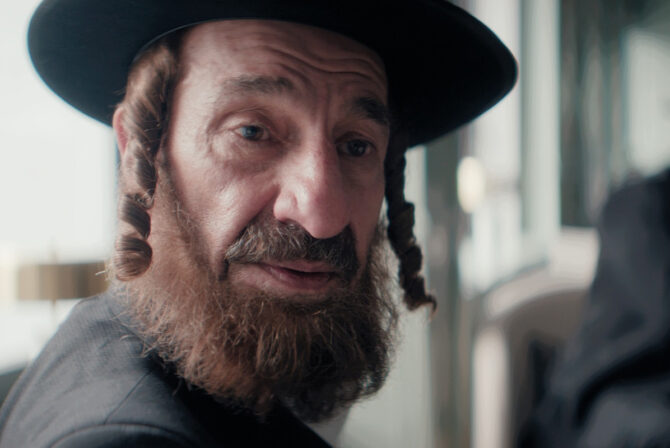We were walking out to the car after Yom Kippur services when my son Matheus, 14 years old at the time, unexpectedly broke the silence and asked, with a tinge of exasperation in his voice, “Father, when can I go to church?”
It had only been a few months past our first anniversary since I’d adopted him and his younger brother from Brazil. Up until then, Matheus had mostly kept to himself any thoughts he might have had about his religious inclinations. His brother had decided that he wanted to become Jewish, abandoning his Christian roots barely nine months into our first year together—he could hardly wait to attend Hebrew school later that year.
I had suspected early on that Matheus was not relating well to the idea of committing to our Jewish customs, rituals, and beliefs. He certainly favored the eight nights of presents for Hanukkah, enjoyed our family get-togethers for the holidays, and did try to follow along with the sermons, prayers, and songs at services. Still, he never seemed at ease with making the kind of commitment that came so easily for his brother—he was not comfortable in separating himself from his Christian faith, and all that had been familiar to him. Maybe it was the concern for staying with his roots and that of his culture and family of origin. Or, perhaps it was the rumblings of his teenage angst and his fervent stance that no one was going to tell him what religion he was going to believe in. And, possibly the thought of having to incorporate yet a third language was too much of a burden when he still struggled to learn English. I’m not even sure he still fully understands himself what compels him to retain his Christian faith.
It was fairly easy in the beginning. I had found a non-denominational church that fit in well with his brother’s Sunday Hebrew school schedule, and his acclimation to and subsequent interest in the activities of the church’s youth group was gradual. Without much umbrage, Matheus continued to partake in all of our Jewish-related activities outside of a few times he chose to bow out of attending services.
Our household became a safe place where all matters of differing religious beliefs in question were accepted. Impromptu discussions were meant to further inform, rather than divide and conquer. On occasion, early Sunday afternoon drives home from their respective religious venues would spark a rather interesting forum about the differences and the many similarities of each boys’ teachings of the day.
However, as Matheus became more devotedly involved with his youth group and Sunday bible studies, there seemed a change in the air at home. He inexplicably became more hostile in his attitude, especially after group meetings. He repeatedly told me in no uncertain terms that I was not allowed to talk to him about God, simply because we supposedly thought differently in our religious beliefs; he didn’t want to “hear it.”
His youth pastor, for whom he had enormous respect, met with him individually and with us together, trying to get him to relax his “holier than thou” attitude, and more concertedly apply the spirit of his Christian fellowship at home. Any change in his attitude was temporary; he was not getting the message no matter how it was conveyed. He left me no choice. Although it was not without prior warnings, I had to pull him from the church.
I felt horrible, yet I had to take a stand. I needed to remind him of his place in the spiritual scheme of things. Even though it was a little more complicated for us because of his unresolved difficulties with his past, his place as the child still needed to be clearly delineated. If he was going to forsake humility, and remain unrelenting with his disrespectful attitude, then I no longer saw the purpose of him continuing with church.
After that, there was some improvement in his attitude at home. Following a brief yet temporary return to church four months later, coinciding with the youth pastor preparing to leave for a three-year missionary assignment to Indonesia, I made plans to enroll Matheus in a private, Christian academy for the start of high school in the fall. I sought a structured infusion of the kind of Christian values in his daily life he truly desired to subscribe to. The school also had its own youth group for high schoolers if he should become interested. It still was a tough sell; he was adamant about not being told what school he would be attending. I had to rely on many others, including the youth pastor, to work with him until he warmed up to the idea. I found out later that he had credited me and the youth pastor to others for his school of “choice,” and that he was grateful.
The only religious intentions I have for both my sons is that they live a just and moral life, and that they are spiritually connected with the understanding that we are mere mortal beings who must yield to the higher authority. This can be accomplished regardless of which organized religion one subscribes to, yet the respect for how one chooses to believe must be ubiquitous. I still find myself feeling awkward in a Christian environment, yet it’s no different for Matheus when he partakes in our Jewish world. I have to keep this in mind when it comes to the intermingling of our ever-evolving father and son relationship.
Like this post? Get the best of Kveller delivered straight to your inbox.







